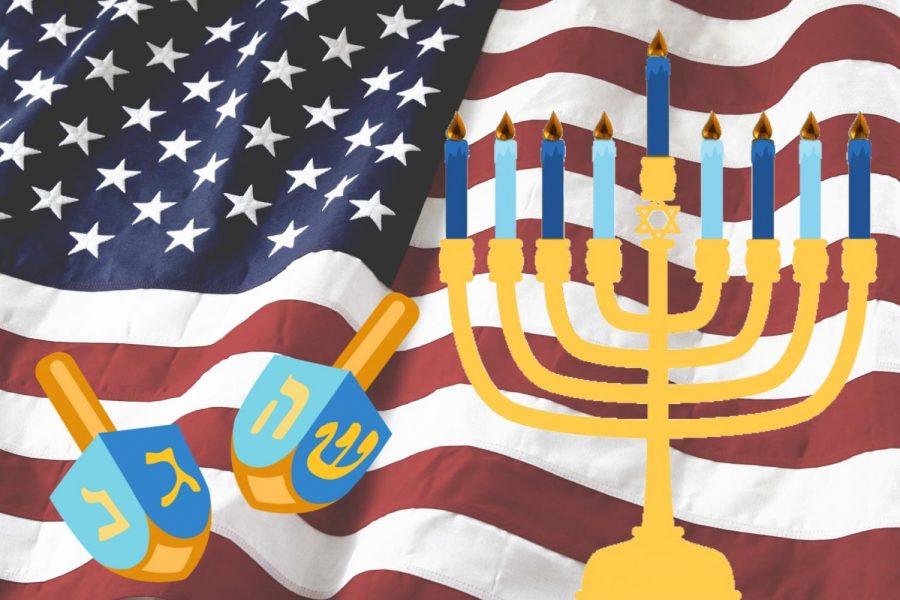The Americanization of Hanukkah
December 10th marked the start of the eight-day long celebration of Hanukkah, a Jewish holiday that celebrates the miracle of light.
In the story of Hanukkah, the kingdom of Judea, the place where the Jewish people lived, was conquered by Syria in 200 BC. King Antiochus of Syria expected the people of his new territory to surrender their religion and convert to Hellenism, the prominent religion of Syria at the time. When the Jews refused to do so, Antiochus banned Judaism, and a huge revolt ensued.
As a result, the holy Second Temple was ransacked and desecrated. All that was left untouched was a tiny vat of oil, which seemed as if it could fuel the lamps no longer than a few hours. In a turn of events, the oil lit the temple with warmth and hope for eight days and nights. At the end of this period, soldiers returned to the temple with materials to rebuild and cleanse the temple to return it to all its glory.
Traditionally, this holiday was celebrated by eating fried foods, representing the oil that lit the fire, and spinning the dreidel, a wooden toy engraved with a Hebrew letter on each side, an acronym signifying the accomplishment of the Jews for surviving all of their hardships. However, the more widely known notion of giving and receiving gifts on Hanukkah did not occur until about a hundred years ago.
A holiday that was once about anti-assimilation has become precisely what it denounced. In response to the rise of Christmas celebrations, a staple in American culture, Jewish people do what they have been doing for centuries: trying to prove that they are not lesser than Christians.
As Christmas rose from a Christian observance to a national holiday of good spirits and cheer, an influx of European Jews arrived in America at the same time. Wanting to adapt to their new home, but not abandon their religion entirely, European Jews began to exchange gifts, but under the guise of celebrating Hanukkah, a holiday that had been widely ignored until it provided competition for Christmas.
In the early twentieth century, rabbis across America began to fear that the festivity and joy that circulated on Christmas would discourage the next generation of American Jews to partake in their faith. Jewish faith leaders hoped to make sure Jewish children felt just as indulged during the holiday season as their Christian classmates did.
Thus began the tradition of giving and receiving gifts on Hanukkah. The origins of these gift exchanges are not deep and meaningful; they are simply a manifestation of the same battles that Jews have been fighting for years in proving their worth to Christians.
This false equivalence of Hanukkah as the Jewish version of Christmas hurts Jewish culture. We celebrate Hanukkah to acknowledge that we survived persecution. We wear our Jewish identities without shame.
Two millennia later, this celebration of the Jewish faith has been warped into one of condensing our identities for the purpose of fitting into a Christian normative society. Having said all of this, I, too, am guilty of giddily looking forward to Hanukkah each year, for the food, games, and yes, the presents.
However, this does not mean that the Jewish people should abandon the traditions they have molded culturally within families and communities by living in America. But rather, we should acknowledge the distortion of this holiday, and in turn, be conscious of our identities and values in a society that tries to erase them.

Arielle is an IB Senior who is very excited for her fourth and final year with The Banner. Outside of The Banner, you can find her telling unfunny jokes...


